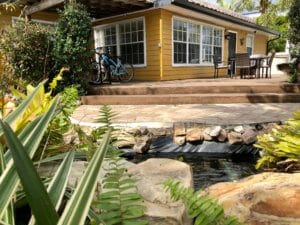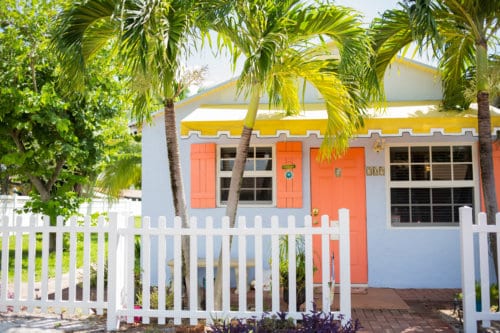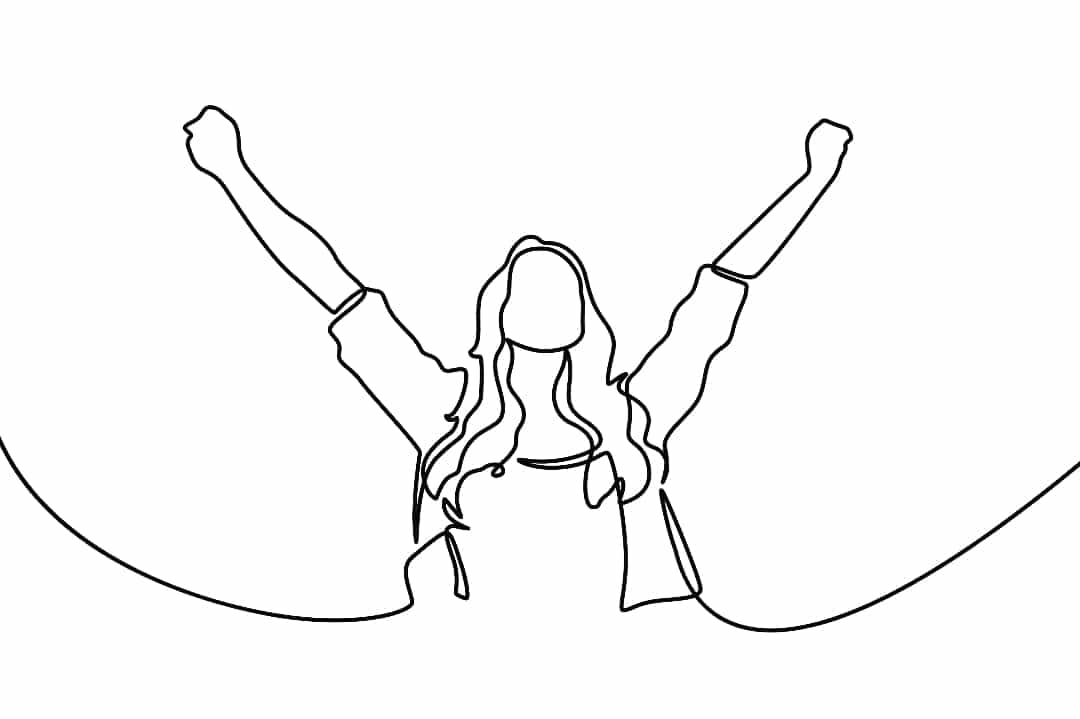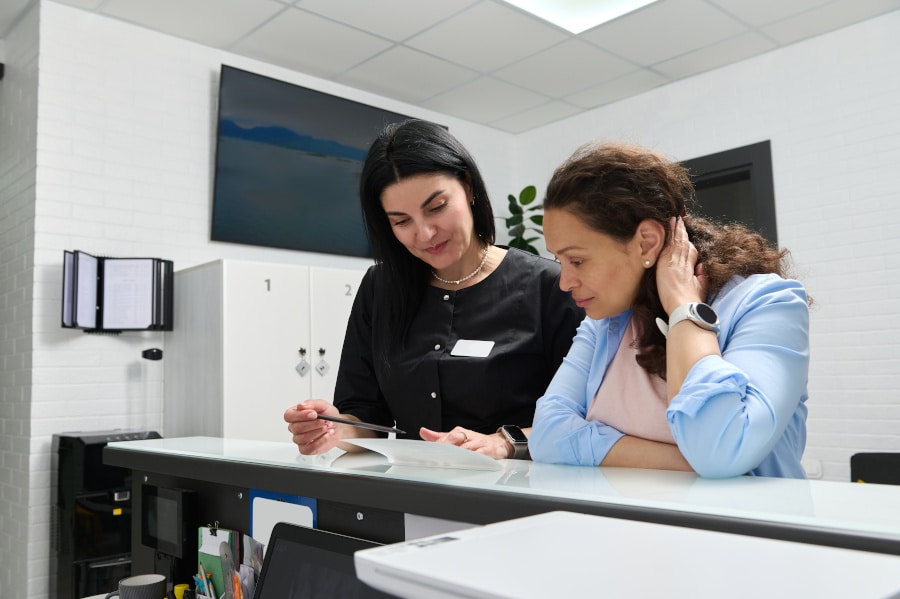The continuum of care involves an integrated system of care that guides and tracks client care over time through a comprehensive array of mental health and addiction treatment services. Spanning all the levels of intensity of care, the levels for each client will vary depending on their unique recovery needs.
At Lifeskills South Florida we offer our clients a full continuum of care:
- Residential Treatment: safe, structured, intensive care environment
- Transitional Living: clients learn self-management while increasing responsibility and taking steps toward independence in a supportive environment
- Partial Hospitalization Program (PHP): step-down level from residential treatment or a direct step into treatment. Clients stepping down from residential treatment maintain the same individual therapist and seamlessly transition back into the local residence or into Lifeskills transitional living community at Osceola Village.
- Intensive Outpatient Program (IOP): step-down level from residential treatment or a direct step into treatment. Clients stepping down from residential treatment or PHP have the same treatment model and continuation of their recovery plan. The IOP program reduces the days in program from 5 to usually 3 allowing clients to ease into volunteer work, employment or to get registered for classes.
- Outpatient Program (OP): Lifeskills has strong, trusted clinical partners within the communities we serve. At times we offer case management support while clients transition out of Lifeskills South Florida treatment continuum linking people back to their outpatient provider supports.
At each level of care, clients receive individual and group counseling using evidence-based treatment modalities. Our comprehensive clinical pathways focus on long-term recovery for both the client and the family. Clients also receive psychoeducation within Residential, PHP and IOP programs customized to meet their individual needs.
During the admission process, clients are assessed and then placed in the appropriate program. Our physicians and therapists then design a treatment plan tailored to the needs of the client that complement the clinical pathways with secondary supports. Working together, the therapist and the client establish treatment goals to develop self-awareness, self-reliance, and self-monitoring skills. Also, clients develop skills to build a balanced home and work life and a social support network within the community.
As they progress through treatment and meet their goals, clients are empowered to move to the next level of care. Adjusting to change and the increased responsibility for managing their own health and safety is an important skill to learn, as such, the therapist stays close to support clients through these adjustments to provide a safety net and make necessary changes during treatment.
What is transitional living?
Osceola Village by Lifeskills South Florida provides structured, monitored living community for both men and women in supported, gender-specific housing. April Scholl, Manager of Osceola Village, says, transitional living plays a vital role in recovery and has many benefits. Research is clear that the longer one stays in treatment, the better their long-term recovery is from mental health and substance use disorders.”
Transitional living helps clients who need a supervised, structured place to live as they attend PHP, IOP, OP, college, or community activities. This environment bridges the gap between residential treatment to semi-independent living to independence.
“From my personal and professional experience, I have noticed that when clients go from residential treatment straight back home to full independence, they tend to struggle with the drastic change from one extreme to the other. That’s why it is important that there is a transitional living facility in place, so clients can gradually transition from one level of care to the next,” shares April.
 Osceola Village encourages clients to grow through meaningful life activities in the areas of education, employment, or volunteerism. We provide clients with mentoring, independence coaching, and life skills management through tasks such as:
Osceola Village encourages clients to grow through meaningful life activities in the areas of education, employment, or volunteerism. We provide clients with mentoring, independence coaching, and life skills management through tasks such as:
- Budgeting and finances
- Medication management
- Grocery shopping and food preparation
- Hygiene
- Household chores
- Implementation of coping skills
- Learning to respect themselves and others
- Social interaction
Our goal is to help our clients successfully transition back to their home, work, and family life and we do this by assisting with vocational skills such as:
- Resume building
- Learning interview skills
- Job searches and placement
- Building of self-worth and confidence
- Completing applications
We also help our clients find continued support in sober and mental health recovery with daily meditation groups, Friday community meetings, and Sunday community meals. Our transitional living staff also helps clients find support outside of Osceola Village such as home groups, sponsors, support meetings (AA, NA, Refuge, SMART recovery, depression, anxiety), or building a sober support network.
Our clients get the support and encouragement they need for a strong foundation for their future and a successful recovery because they have important building blocks in place for their future. Transitional living not only helps to bridge the gap from residential to independence but also provides a missing time element that can sometimes lead to relapse or regression. At this level of care, clients take the time needed to apply what they have learned in residential treatment to their daily lives. They also have the time to adjust to being in recovery, helping them to build a strong foundation and practice being independent.
“I truly believe Osceola Village by Lifeskills South Florida is such a vital step in recovery from mental health and substance use disorders. We give each client the support that they need to return to an independent life successfully,” says April.
What is outpatient care?
The outpatient level of care is designed to help people transition from a higher level of care such as a Partial Hospitalization Program (PHP) or residential treatment into a less restrictive environment that allows for reintegration. It is also for individuals in the community that are currently integrated but need the flexibility of a patient level of care.
At Lifeskills South Florida, our comprehensive Outpatient Program provides a structured, intensive, and extended care experience. Our outpatient program is primarily structured as an Intensive Outpatient Program where clients come in 3-4 days per week. Our facility offers clients individual treatment plans that allow for modification in participation within various groups, such as:
- Applying Cognitive Behavioral Skills
- Healthy Relationships
- Mindfulness
- Dialectical Behavioral Therapy
- Relapse Prevention
Miguel Nerys, Director of Outpatient Services, shares, “Outpatient programs are a critical part of the continuum of care as it becomes the testing ground for coping skills and resource management. In the Lifeskills South Florida Outpatient Program, clients receive nine hours of group therapy a week from a diverse group selection that helps individualize treatment. They also have one hour of individual therapy to help meet the needs on a more personal level. Upon admission, clients connect to resources that help them gain employment, volunteer, or enroll in school. They are required to commit to 20 hours a week of productivity as a part of their treatment plan.”
Outpatient treatment offers clients accountability, stability, and structure. The environment of an outpatient program helps clients develop a support network of peers and gives them more freedom to maintain commitments to work, family, and school.
The care continuum at Lifeskills South Florida allows our clients to enter treatment at a level appropriate to their needs and then step to the next level as needed. Our licensed, certified clinicians take the opportunity during each level of care to observe the clients and look ahead into their next level of treatment, allowing them to be fully engaged as the client transitions.
How can we help?
If you or a loved one is suffering from a mental health or substance use disorder and would like to learn more about our treatment program, call us today. Our admission staff is available to answer your questions or give you information about our program. Call us at 954-953-1742 or complete our contact form.




